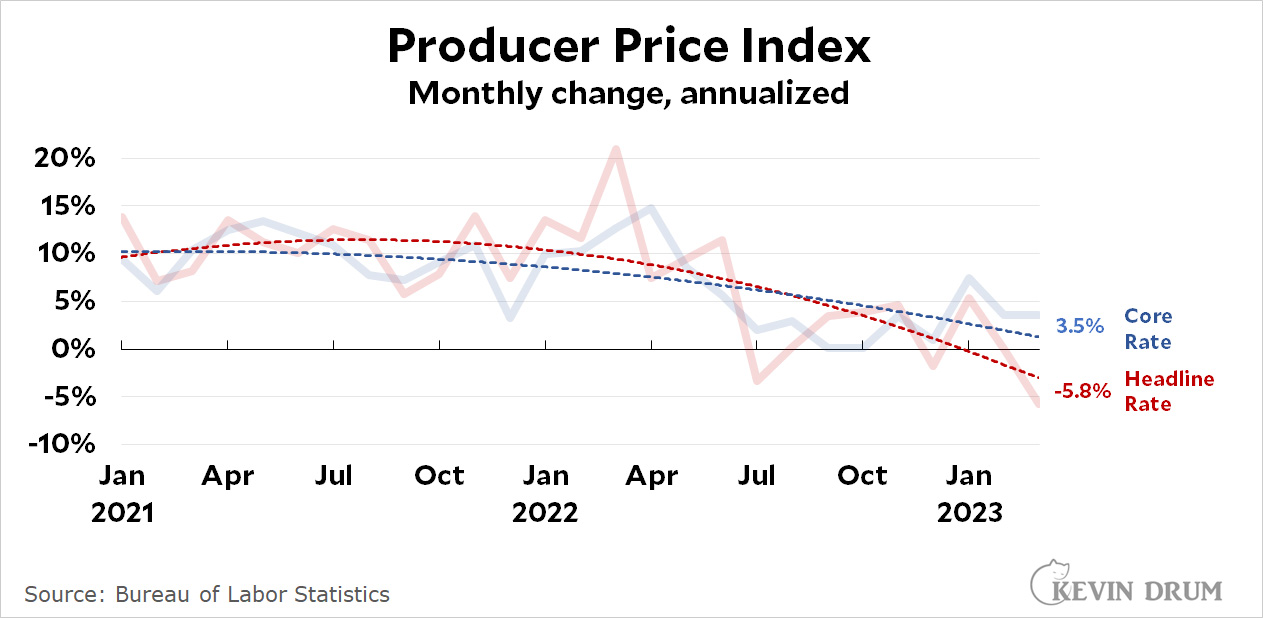Yesterday a friend asked if I wanted to comment on National Review's editorial about the national abortion pill ban.¹ I didn't, really. NR is, obviously, institutionally anti-abortion, and I didn't have much interest in reading a bunch of pro-life boilerplate for the thousandth time in my life.²
But eventually my curiosity got the best of me, and I have two comments. First, kudos to NR for acknowledging that the bulk of the ban was wrongly decided "given that the six-year statute of limitations passed between the FDA’s belated 2016 ruling on that approval and the filing of suit." This is true. Mifepristone foes like to point out that the FDA waited 14 years to rule on a legal challenge filed in 2002, but that doesn't matter anymore. The FDA re-issued and updated their rules in March 2016 and the lawsuit challenging them was filed in November 2022. This was the first time the original approval of mifepristone was challenged, and by then the statute of limitations had expired. This should have gotten most of the lawsuit thrown out immediately.³
Most partisans these days are unwilling to acknowledge any interpretation of the law that works against them, so due credit here.
But I also have a second comment. I am (already!) sick and tired of reading stuff like this:
From the beginning, the pill was given favored regulatory treatment, with accelerated approval under Subpart H, a program designed for emergency AIDS drugs. Utilizing this fast-track approval process required the FDA to characterize pregnancy, preposterously, as a “serious or life-threatening illness.”
This just isn't true. Mifepristone was approved under normal procedures. Subpart H was used only to accelerate rules that limited how it could be used. KFF explains:
In the case of mifepristone, Subpart H was originally used to restrict the dispensing to prescribers who agreed to dispense it in certain health care settings, by or under the supervision of a qualified physician who attested to the ability to accurately date pregnancies and diagnose ectopic pregnancies.
This whole thing reminds me of the conservative myth that Obamacare was "rammed through" under reconciliation rules. It wasn't. Obamacare was passed under regular order. After that, a small "sidecar" of mostly minor revisions was passed under reconciliation, but that's all. Nonetheless, the conservative myth persists.
Subpart H "acceleration" looks like it's going down the same path. It's quickly congealing into accepted wisdom even though it's simply not true that mifepristone got any special treatment by the FDA. It's safe, reliable, and legal, and there's no reason it shouldn't have been initially approved and shouldn't now be widely available.
¹Which has since been partly stayed.
²I imagine the editors of NR feel the same about reading anything I write on the subject, and I don't blame them.
³In addition to a few minor things, there's a different part of the lawsuit that challenges the FDA's 2021 ruling that made mifepristone available by mail. These items are not affected by the statute of limitations. However, the basic approval of mifepristone is.
 Every year, Bud Light spends more than $100 million on marketing. Of that, maybe a few million goes to social media. Of that, a small fraction goes to deals with social media influencers. And of that, a few thousand dollars recently went to Dylan Mulvaney, a trans woman who racked up something like 10 million followers on TikTok by putting up daily videos of her transition during the COVID-19 pandemic.
Every year, Bud Light spends more than $100 million on marketing. Of that, maybe a few million goes to social media. Of that, a small fraction goes to deals with social media influencers. And of that, a few thousand dollars recently went to Dylan Mulvaney, a trans woman who racked up something like 10 million followers on TikTok by putting up daily videos of her transition during the COVID-19 pandemic.





